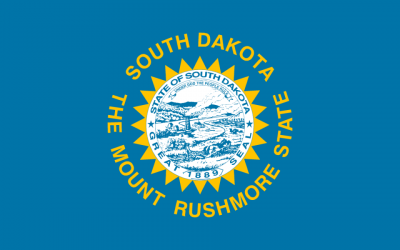South Dakota

South Dakota enacted its first right of publicity law in 2015 which preempts any common law right of publicity in that state. It is not yet clear whether it will have any effect on the privacy-based appropriation tort in the state.
Statute
YES
South Dakota recently enacted its first right of publicity law to “prohibit the unauthorized commercial use of a personality’s right of publicity.” The statute provides for $1,000 in statutory damages, in addition to other possible relief.
Common Law - Right of Publicity
NO
South Dakota’s statutory right expressly excludes any common law claims “regarding a misappropriation of name, image, or likeness of a personality.” This potentially allows privacy-based misappropriation claims for non-personalities.
Common Law - Right of Privacy-Appropriation Tort
YES
South Dakota has recognized a right to privacy and the appropriation branch of that tort as developed in the Restatement (Second) of Torts. It is not clear what preemptive effect, if any, the new right of publicity statute will have on the appropriation branch of the right to privacy.
Montgomery Ward v. Shope, 286 N.W.2d 806 (S.D. 1979)
Truxes v. Kenco Enters., 119 N.W.2d 914 (S.D. 1963)
Post-Mortem Right
YES
The statutory right prohibits the use of a person’s identity for seventy (70) years after death. The statute says it applies to those deceased prior to July 1, 2015. To succeed with a claim, successors must register their interest with the state.
Presumably, the statute is also intended to apply to those who die after July 1, 2015, but the statute is ambiguous on this point. The statute also does not appear to limit post-mortem rights to those who die as domiciles of South Dakota.
Limits on Right
Does the law require the plaintiff or identity-holder to be a celebrity or have a commercially valuable identity?
LIKELY NO
The statute is limited to “personalities” who are individuals who have a “name, voice, signature, photograph, image, likeness, distinctive appearance, gesture, or mannerism” that has a “commercial value.” The person need not commercially exploit that value to bring a claim. No court has yet interpreted the statute, but it is possible that it will be interpreted as some other courts and states have to include claims by individuals who do not have an independent commercial value outside of the fact of the use itself.
Does the law protect persona?
YES
The statute is quite broad in its coverage and includes uses of a person’s “name, voice, signature, photograph, image, likeness, distinctive appearance, gesture, or mannerism,” suggesting that virtually anything that evokes the person’s identity may fall within the statute’s sweep.
Is Liability Limited to Uses on Commercial Advertising or Commercial Speech?
LIKELY NOT
The statute defines a “commercial purpose” as the “use of an aspect of a personality’s right of publicity in connection with a product, merchandise, goods, service, or commercial activity; for advertising or soliciting purchases” of the same, or for promoting commercial activity or for the “purpose of fund-raising.”
Statutory Defenses
YES
The statute excludes from liability:
- Uses in literary, theatrical, musical, audio-visual, film, radio, and television works.
- Material that has political or newsworthy value
- Original works of fine art
- Promotional material or advertisements for news or entertainment that use part of original broadcast and do not suggest endorsement
- Any advertisement for any of the protected uses
- Any uses of a right of publicity before December 31, 2014
- Truthfully identifying author or performer
- Use in broadcast or reporting of matters of public interest, including unauthorized biographies
- Uses when the commercial value of the personality derives from criminal charges or conviction
First Amendment Analysis
In the context of defenses to appropriation claims under the rubric of the right to privacy, the state has recognized a newsworthiness and public interest defense.
Truxes v. Kenco Enters., 119 N.W.2d 914 (S.D. 1963)
South Dakota sits in the Eight Circuit Court of Appeals. In C.B.C. Distribution & Marketing, Inc. v. Major League Baseball Advanced Media, L.P., 503 F.3d 818 (8th Cir. 2007), the Eighth Circuit applied a balancing test and held that the use of players’ names and statistics by a fantasy sports league was protected by the First Amendment against a claim under Missouri’s right of publicity.
